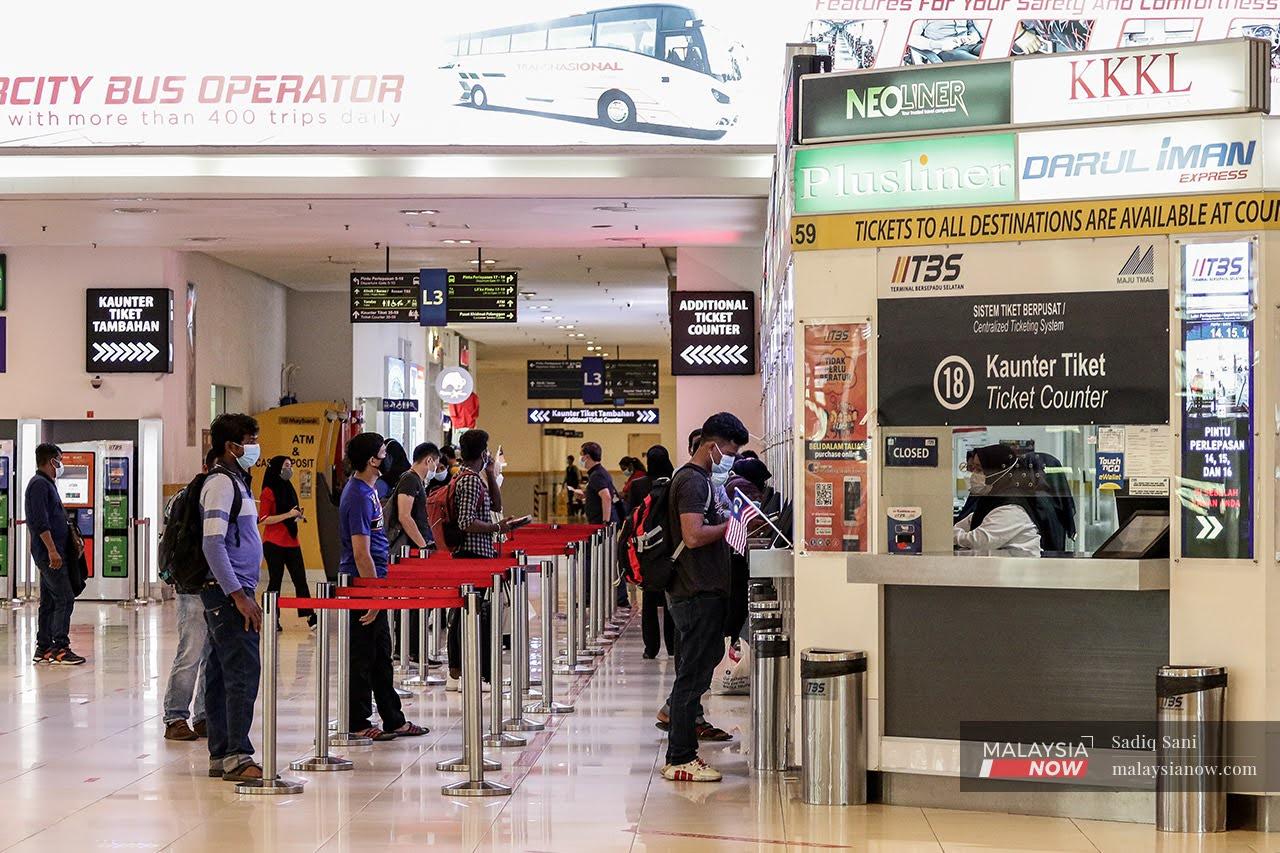Endemic hope a light at the end of the tunnel for bus operators
But long-standing problems such as a general shortage of drivers persist.
Just In
Bus operators throughout the country are heaving a sigh of relief as the transition to endemicity continues, hopeful that the gradual easing of restrictions will breathe new life into a sector that has languished since the onset of Covid-19 more than two years ago.
Many businesses had suffered under the movement restrictions imposed to curb the spread of the virus which took a concurrent toll on the economy as well.
As borders closed and interstate travel became a thing of the past, bus operators found themselves at a loss over what to do next.
With no further need of their services, many turned to alternative jobs in fields such as logistics and food delivery in order to continue earning a living.
With any luck, though, things are beginning to turn around.
Laili Ismail, president of the Malay Peninsular Malaysia Express Bus Operators Association (Pembawa), said operators were hopeful of a revival following the surge in demand for tickets ahead of Hari Raya Aidilfitri.
He said bus drivers who had been retrenched during the movement control order (MCO) period were also being recruited once more as the industry regains its footing.
“We feel that there is light at the end of the tunnel for us to continue operating like we did before the MCO,” he told MalaysiaNow.
In fact, he said, operators were now struggling to meet the demand for bus rides as a number of former drivers had turned down the offer of recruitment in order to continue with their current jobs.
“I have a total of 100 buses ferry passengers from Kelantan to capital cities throughout the peninsula,” he said.
“But 20 of them aren’t going anywhere right now because they have no drivers.”
He estimates that about 20 operators registered with Pembawa are short of drivers, some of them by up to 15%.
The Pan Malaysia Bus Operators Association (PMBOA) meanwhile said that the shortage of drivers was a long-standing problem in the industry.
PMBOA president Mohamad Ashfar Ali said not many were interested in becoming bus drivers while the process of getting started in the industry could cost up to RM5,000 for a public service vehicle licence and a goods vehicle driving licence.
“It’s not just the express bus industry that is experiencing this problem,” he told MalaysiaNow.
“There is a shortage of drivers for lorries, tour buses, factory buses and hop-on, hop-off buses as well.”
Ashfar believes that there are presently some 5,000 vacancies waiting to be filled.
“While the transition to the endemic phase will help revive our business, it will not solve some of the other problems that we continue to face,” he said.
He urged the government to help by providing courses for bus and lorry drivers, and by easing the burden on those looking to enter the industry.
“The lack of drivers due to the MCO has been mostly resolved, and our buses are operating once more,” he said.
“It’s the shortage of drivers as a whole that’s a problem, partly because there are no replacements for those who retire.”
According to Ashfar, all 120 companies registered with PMBOA are struggling with this issue.
They have tried to encourage young people to become drivers but response has been lacklustre.
“We held roadshows but nothing worked,” he said.
“This is why we suggest that the government provide free courses for the youth.”
Subscribe to our newsletter
To be updated with all the latest news and analyses daily.
